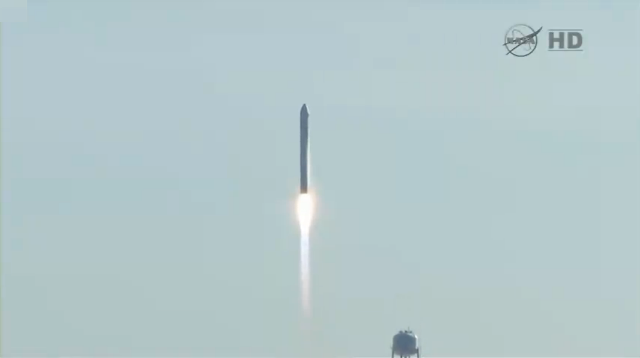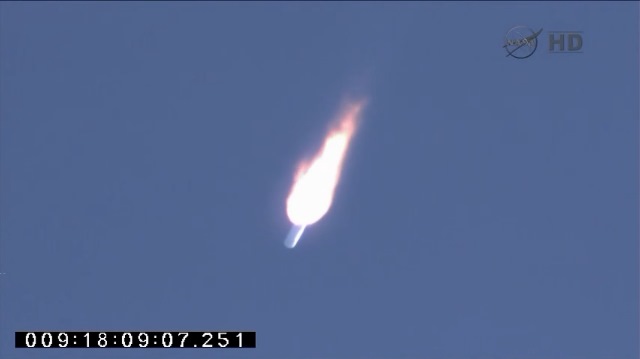

An Antares rocket launched at 1:07 p.m. EST today at NASA's Wallops Flight Facility on Wallops Island, VA, for the first commercial resupply mission to the International Space Station. Orbital Sciences Corporation decided to scrub the Wednesday launch attempt of the Antares rocket and the Cygnus cargo spacecraft due to an unusually high level of space radiation that exceeded constraints imposed on Antares. Orbital Sciences proceeded with the launch of the Orbital-1 cargo resupply mission after closeout of all remaining pre-launch reviews and tests.
Orbital conducted a comprehensive review of data related to the radiation environment in space, further reviews and modeling of the rocket's avionics systems, and the forecast for favorable terrestrial weather conditions. Upon a deeper examination of the current space weather environment, Orbital's engineering team, in consultation with NASA, determined that the risk to launch success was within acceptable limits established at the outset of the Antares program.
The solar flux activity that occurred late Tuesday afternoon resulted in an increasing level of radiation beyond what the Antares engineering team monitored earlier in the day. Overnight, Orbital's engineers conducted an analysis of the radiation levels, but the Antares team decided to postpone the launch to further examine the potential effects of the space radiation on the rocket's avionics. At Mission Control in Houston, the flight control team reported that the station's Expedition 38 crew was not affected by this solar event and did not require any special precautionary measures.
NASA Television will have a post-launch news conference at approximately 2:30 p.m. The launch should result in the Cygnus spacecraft arriving at the ISS on early Sunday, Jan. 12. NASA TV coverage of rendezvous and berthing will begin at 5 a.m. EST for a 6:02 a.m. capture. Coverage of installation of Cygnus will begin at 7 a.m. EST.
Advertisement
Learn more about Nasa





